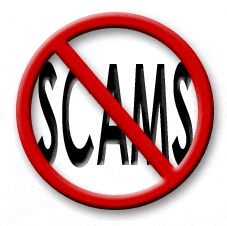Do You Know if Those Secret Shopper Ads are Scams or Honest Employment

If it looks like a scam, sounds like a scam, it probably is a scam!
Would you like to be a Secret Shopper? Set your own hours! Earn big paychecks! You've probably heard about or maybe you responded to one of the advertisements. So, how did it go? Were you successful and enjoyed new-found money in your checking account?
Employment frauds generally appeal to the desperate and unemployed. They promise lucrative, easy-to-perform, no experience necessary, and abundant pay checks. People who are experiencing problems in finding a job, or one that actually pays enough to survive on, are prime targets. Additionally, people who do not have relevant education, job skills or experience hope this will be an answer to their prayers.
Skepticism is set aside in the belief of a fairytale job. The hype and promises take over the person's commonsense. Usually, no one gets anything for nothing. Many times, caution is thrown out the window, in the desire to earn big bucks with little effort.
The secret shopper jobs entice people who believe the short hours, be-bopping around to stores and making purchases on behalf of other merchants. Supposedly, other businesses desire to know how their competition is displaying, marketing, and pricing specific items. The people who are hired will spend their days visiting stores to check on specific items, write a report of their findings, and receive a big paycheck for their efforts.
Although there are honest secret shopper jobs, most are scams. There is no real way to detect if the advertisement in newspapers or magazines really exist and are above board. And, there is no way to be certain that the ones listed in cyberspace are on the up and up.
Many times, there are upfront requirements, which include purchasing a product or things to make the job easier and more successful. A caution flag should be raised if a potential employer requires you to purchase their product or demands purchasing equipment prior to beginning the position. And, many offer a money back guarantee.
Turn around and walk out the door, or hang up the phone. Pay attention to that little voice in the back of your mind. “If it seems too good to be true, it probably is.”
An employer that requires you to pay for the 'privilege' or working for them, should be avoided. These types of strategies can indicate that you are being conned or scammed. Bottom line, employers pay you, not vice versa!
New twists on 'secret shopper' jobs have been brought to light. Two in particular have been around for a few years. Essentially you would be asked to cash a check from someone, and wire the money to the check writer. In return for your trouble, they will send you a nice percentage of the money after they receive it. Usually the assignment will be required to be accomplished in 24 to 48 hours, or you won't be paid or considered for future assignments.
The person is preoccupied with getting the funds wired to the employer before they find out the check was counterfeit. So, now the money has been sent to an unknown individual, and the person who cashed the check is liable for the funds at his bank. The money is long gone, the contact has disappeared, and you have just been taken for a ride.
Tips to Avoid Falling Victim to Secret Shopping Scams:
Anyone can publish a help wanted advertisement. Don't confuse the appearance of the ad and the proof of offer.
Don't be fooled by impressive company names. Research the company before answering any secret shopping advertisements.
Never pay a company to hire you. If this is a requirement, it's probably a scam.
Avoid companies that require you to pay for specific items out of your own pocket. Some indicate they will reimburse the buyer when a receipt is submitted. Don't get involved with this game, if a company wants you to purchase something for them, get a purchase order or check from them.
Don't wire money to strangers that have supposedly hired your services. Sending or wiring cash leaves you no alternative to dispute the transaction. Cash is cash, and when you place it in someone else's hand, it's gone.
Contact the Better Business Bureau, local or state agencies, or the Federal Trade Commission if you feel uncomfortable about the validity of an offered job.
Don't take chances with your identity, personal bank accounts, credit cards, or financial information. You will be the one to answer for any wrong doing, as you are the one leaving your fingerprints on an accessible paper-trail.
If it doesn't feel quite right, don't do it!








